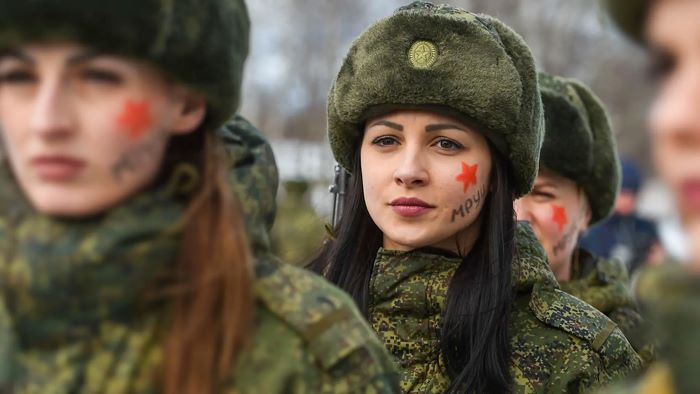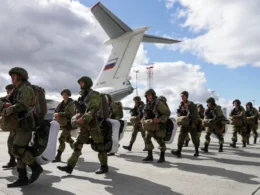A Russian state-backed private military company (PMC) is specifically attempting to recruit women into combat roles in Ukraine for the first time, the UK Defense Ministry reported.
The adverts from Russian PMC Redut appealed for female recruits to join the Borz Battalion as snipers and uncrewed aerial vehicle operators. Redut is believed to be directly sponsored by Russia's Main Intelligence Directorate.
According to the UK intel, it remains unclear whether official Russian defence forces will seek to follow suit and open more combat roles to women.
“Women have rarely taken front line fighting roles within pro-Russian forces during the current war. However, there was a strong tradition of female snipers and other combat troops in Soviet forces during the Second World War,” the British intel tweeted.
In March 2023, Russian Defence Minister Sergei Shoigu said that 1,100 women were deployed in Ukraine, which would equate to only around 0.3% of its force. Currently, women primarily serve in medical and food service positions.
The number of women in Ukraine’s Armed Forces has increased by 40% compared to 2021. According to the Ministry of Defense, the number of women in the army has increased by 12,000 – almost 43,000 servicewomen are currently serving.
It’s explained by the lifted restrictions on women’s access to all military positions. Previously, women could serve mainly as medical specialists, signalmen, accountants, clerks and cooks. However, now a female soldier in Ukraine’s army can be a driver, grenade launcher, deputy commander of a reconnaissance group, commander of an infantry fighting vehicle, repairman, machine gunner, sniper, etc.
In addition, age restrictions for women have been lifted. Previously, a woman could sign a contract for military service up to the age of 40, but now the age has risen to 60, on par with men.
Read also:
- Ukraine attacked Russia-occupied Crimea base, wounding 17 Russian troops
- Russian attack on Kherson kills one, injures 3, destroys residential house
- Ukrainian fighter battles exhaustion in 14-hour swim for survival




